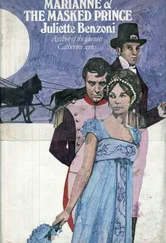Now the former teacher turned back to Berta, smiled like a child, rolled up his secret marching orders, and tried to leaven the glum moment with a harmless cliché, emphatically delivered: “All this will be over before long!”
Berta clapped her hands, spun in a circle several times, snapped to attention, and marched back and forth across the small room, a female soldier who didn’t take her soldiering especially seriously, whose manner was rather carefree and amused. She hummed the “Radetzky March” and let herself fall laughing on the bed, sat up, breathing heavily, giggled again at Rudolf, full of mirth, and then, abruptly, fell to thinking.
“Any last requests?” asked Rudolf, courage and discouragement struggling in his eyes. Berta laid an index finger on her lips, thought for a moment, and then called out in a victor’s pose: “I do! I want to hear the ‘Aquarelles’ by Strauss! Yes. Yes. That’s what I want.”
Rudolf’s brow furrowed, then he smiled and said a bit curtly, “If you wish.”
Berta forgot about the weight of things, the cold in the unheated room; forgot her nineteen-year-old brother, from whom they’d had not one word since March of 1944. All she knew was he’d been stationed to post number 34421-A and had departed from Upper Silesia. At least she could still write to Karl: Wastl was off at a training camp, some fourteen kilometers from Grajewo; Rudolf unexpectedly here on leave, Mother doing well, she herself doing well too; but how would she fill in the blank space that corresponded to Richard?
The giddy thaw of youth was still on Berta’s face, the belief that the present is always the best time to spread your arms wide and embrace the whole world, all at once, as best you can.
There was a trembling around Rudolf’s mouth; the tacked-on second skin of the Private First Class was flaking away, the man inside was coming to life, was urging him toward the woman, and in proximity to her sensuousness and warmth, the waltz with all its frivolity — which he had always dismissed, thinking it sordid and juvenile — took on a new appeal. And when Berta then requested that Rudolf the fiddler play “The Blue Danube,” even he began to feel that the Danube was truly so blue and eternal, and that despite everything, a person had a right to be happy, that there was no time for sorrow and gloom, that it was possible to abandon oneself to the soft butterfly’s flight of a melody. “And when the people start to complain / Shove a few more in the oven’s flame …”
With his eternal weakness for muses, this music teacher at a girl’s secondary school in the city of Donaublau now discovered, with almost ferocious voluptuousness, the Johann Strauss inside him, and defended this silly Johann Strauss heroically against his own rather nettlesome character, ordinarily so inclined to stubbornness: “So I’m a Johann Strauss. Fine then. Who cares about those Beethovens or Alban Bergs? They find a hair in every soup. Live and let live, that’s what I say. Live and let live!”
In Berta’s presence, Rudolf had felt strengthened in his struggle against his own irascible character. With a look of solemn inwardness, Berta defended her “Blue Danube”; her mouth flapped open and closed, diligently and eagerly, like a duckling waddling in that perfectly blue river. At the same time, her eyes turned naughtily to Rudolf, as if inviting him over, and her singing faltered before she slipped back with renewed intensity into that inwardness betrayed by her child-like voice, and she managed to convince Rudolf that he had never really been a soldier in the German army, that it was only a nightmare he shouldn’t take too seriously. He was the music teacher at the girl’s secondary school in the city of Donaublau. And he was more than that. In him Johann Strauss had found the most ardent admirer and ally!
When Rudolf laid the fiddle back in the dresser and walked over to Berta, who was now sitting on her bed, she no longer turned her head away, and her body had slackened; it felt soft and pliant.
The next morning, the thirty-three-year-old bachelor with an irascible character, who had so passionately deflowered the twenty-two-year-old neighbor girl Berta Faust, promised himself he would make sure that — as soon as this nightmarish war was over — the broodingly shy Berta with the vast astonishment in her eyes would get a man with Alban Bergian faithfulness and Beethovenesque rigor.
“Why should I take Strauss from her? To ignore the ‘Aquarelles’ and the ‘Blue Danube’ would mean to ignore what brought us together. And what, after all, does the ‘Blue Danube’ have to do with ‘Deutschland Über Alles’? They’re water and fire — and I prefer to stick with water.”
These were his thoughts while he sullenly observed the sleeping creature beside him.
DUTY IS DUTY, SCHNAPPS IS SCHNAPPS
Berta Schrei, with her immense affection for Johann Strauss, could only wonder why it was that this man Wilhelm was so difficult to fit into her life. Looking up at the rearview mirror, she saw Wilhelm’s eyes: fixed rigidly, or so it seemed, to the road. She shut her mouth, and when for a moment Wilhelm’s eyes met hers, more by chance than design, it wasn’t the stare of Wilhelm the returnee she saw — the Wilhelm who looked at her with Rudolf’s eyes — but instead of Wilhelm the chauffeur, humming some vague tune as he adjusted the rearview mirror. What Berta refused to say aloud began to teem in her mind with dreadful intensity.
“When our little girl sleeps, she looks like the Madonna,” Berta had wanted to say, but did not.
Wilhelm’s mouth was as tightly sealed as Berta’s throughout the drive home. This left time for Berta to indulge her thoughts about Little Berta’s resemblance to the Madonna. During dinner, when Berta was finally on the verge of revealing this discovery, which to her felt quite essential, the telephone rang, and Wilhelm, chauffeur and Come-hither-boy, said, “Very well.” And, “Yes, naturally.” And, “In a quarter-hour it’ll be taken care of.” And, “But that goes without saying. It’s what I am paid for!”
In truth, Wilhelm Schrei had, like Berta, felt something needed to be said about the events of earlier that day; yet the Come-hither-boy and chauffeur to Mueller-Rickenberg — a vocation by which he assured the Schrei family’s continued existence, and not too shabbily at that — knew he must set aside his private life as soon as duty called. Berta understood this, too; she no longer hemmed and hawed about it, as she’d done in the old days. She stood up without a word, left for the bedroom, and took Wilhelm’s uniform down from its hanger. She was standing with her back to the Madonna. But then she happened to look at it. Forgetting the chauffeur’s uniform draped over her arm, she stood rooted to the spot and stared, as though the real reason she had entered the bedroom was to make an especially attentive, conscientious study of the Madonna’s face. The likeness really was astounding. When Little Berta slept, she was the perfect image of the Madonna.
“When she’s asleep, you know, she’s not so caught up in the world, so concerned with the surface of things. The stamping and molding hands of life, the rolling, pressing, and flattening fingers — the weight of things, life as such , it can’t hurt her so long as she’s asleep. It’s that simple. Sleep startles everything away. Everything and everyone.”
“Berta! What’s keeping you so long?”
Wilhelm’s shout from the bathroom only confirmed what Berta was feeling. And after his bellowing, Little Berta came in to her mother with a wrinkled nose, the corners of her mouth turned contemptuously downward, to ask, harsh and a bit imperious, “You’re not right in the head, are you Mama? Papa needs his suit!”
Читать дальше











